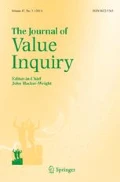Notes
See Stephen Halliwell, “Plato’s Repudiation of the Tragic,” in Michael S. Silk, ed., Tragedy and the Tragic (Oxford: Clarendon Press, 1996), pp. 332–349.
Why do we, who (according to Plato) all truly hanker after the good, give way so easily to pleasure? And why do we, who love the good, find cruelty thrilling in the gods? Partly, this is as Plato says, because the poets’ stories awaken powerful emotions, and these give zest to our lives. Also I suppose we love to hear what gods do because they play out our hearts’ desires, raping, stealing, paying people back—doing things we cannot get away with on the human level.
Plato nods to polytheism: the myth of the chariots in Phaedrus shows gods with distinct characteristics. In the Phaedrus, the gods provide some guidance for human souls in heaven. Their guidance is analogous to that of chorus leaders, and their human followers are called sunopadói, companions or attendants (248c). Apparently each god sets a kind of style for his or her chorus, and also for the moral development of its members (252c–e). Plato has Socrates say earlier in the dialogue that he accepts what is commonly believed (229c–230a), but the myth alone shows that this cannot be entirely true: the gods of myth could not be cooped up in the inverted cone of Plato’s heaven.
Choruses in Euripides Bacchae, First Stasimon, 370-432; Sophocles’ Oedipus Tyrannus, Second Stasimon, 863–910.
I discuss the importance of tragic poetry to democratic education in First Democracy, Oxford 2005, pp. 29, 199–200.
Herakles in Philoctetes 1440–44; Thucydides give reverence pride of place in his constellation of virtues (3.82–83).
As appears to be the case with Menelaus in the Ajax.
On the subject, see David Konstan, Pity Transformed (London: Duckworth, 2001).
See ibid., chapter 4, for a more nuanced account of pity and the gods. In the Odyssey, by contrast with the Iliad, the gods do show some capacity for pity towards their favorites.
See Martha Nussbaum, “The ‘Morality of Pity’: Sophocles’ Philoctetes,” in Rita Felski, ed., Rethinking Tragedy (Baltimore: The Johns Hopkins University Press, 2008), pp. 148–169.
On the difference this text shows between gods and mortals, see Bernard Knox, “The Ajax of Sophocles” in his Word and Action: Essays on the Ancient Theatre (Baltimore: The Johns Hopkins University Press, 1979), pp. 125–60.
Hyllus does not appear to be asking the gods to be better behaved. If he were, we might think of this speech as moving in Plato’s direction of reframing the myths to set moral examples. By contrast, Ion in Euripides’ Ion is critical of the gods: “Apollo should have a warning from me…,” lines 436–51.
He is, nevertheless, calling attention to the possibility of compassion in an ironical use of the rhetorical device of mentioning what you say you are leaving out (praeteritio). A thorough study of compassion in Plato shows that he is fairly consistent in his attitude toward the subject, from the Apology to the Laws. A full study of this subject is beyond the scope of this paper.
Konstan, op. cit., p. 43.
Author information
Authors and Affiliations
Corresponding author
Rights and permissions
About this article
Cite this article
Woodruff, P. Virtues of Imperfection. J Value Inquiry 49, 597–604 (2015). https://doi.org/10.1007/s10790-015-9527-4
Published:
Issue Date:
DOI: https://doi.org/10.1007/s10790-015-9527-4

